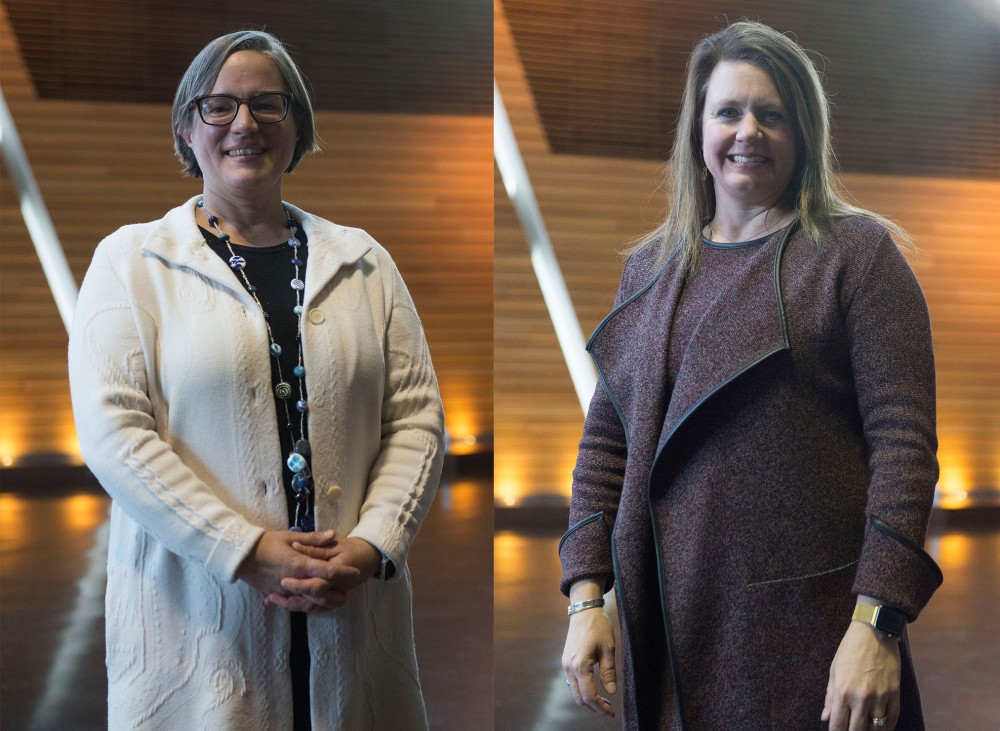Despite the below-zero temperatures and canceled classes, around 60 faculty and staff braved the cold and headed to the McNamara Alumni Center Tuesday afternoon to learn about the University of Minnesota’s new research hub.
The Strategic Partnerships and Research Collaborative is a new tool for University faculty and staff across all system campuses to seek support and resources needed to do larger research projects.
SPARC connects researchers with people at the University who have experience in areas like writing grant proposals and collaborating with people across different disciplines.
It is sometimes hard for just one person to pursue large research projects, said Amy Kircher, a co-leader for SPARC and director of the University’s Food Protection and Defense Institute. Katey Pelican, an associate professor in the Department of Veterinary Population Medicine, is also co-leading the collaborative.
As leaders, they’re working as a source of support for users. Kircher said some of their plans include working with faculty to help craft grant proposals and bringing researchers together for bigger projects.
“Really big challenging research problems often require the coordination of a lot of different entities,” said Vice President for Research Chris Cramer. “That level of complexity often exceeds the ability of any one or small number of researchers to put together a competitive proposal,” he said,
Some of the resources SPARC offers are help with formatting grant proposals and red teaming, which involves reviewing a proposal before it is sent off for a formal review, Cramer said. Having a good grant proposal could determine if researchers get project funding.
Jeff Standish, manager for corporate sustainability in the University’s Institute on the Environment, attended the launch event Tuesday because he wanted to learn how IonE could collaborate with SPARC. “It is great to think about how the support services that SPARC is going to offer could be utilized,” he said.
While the collaboration was launched Tuesday, the idea for SPARC is not new to the University.
“There have certainly been a lot of people who have refined this idea over time. … It was a culmination of all these efforts and a real willingness and support from leadership to make it a go,” Kircher said.
Penny Norquist, program manager for SPARC and the Food Protection and Defense Institute, said she plans to use her experience to help users with things like budgeting and creating timelines for their research.
Funding for SPARC is coming from the Office of the Vice President of Research and the Global Program and Strategy Alliance.
“I wanted to be part of this as well to make it clear to faculty that this was designed to cross all areas of the University,” Cramer said.
To Cramer, SPARC will be a way to help the University go after grand challenge problems, which are problems hard to solve without interdisciplinary collaboration. “One of the reasons to do this is to try to go after grand challenge problems that we have not been as successful in the past at attracting funding for,” Cramer said.








